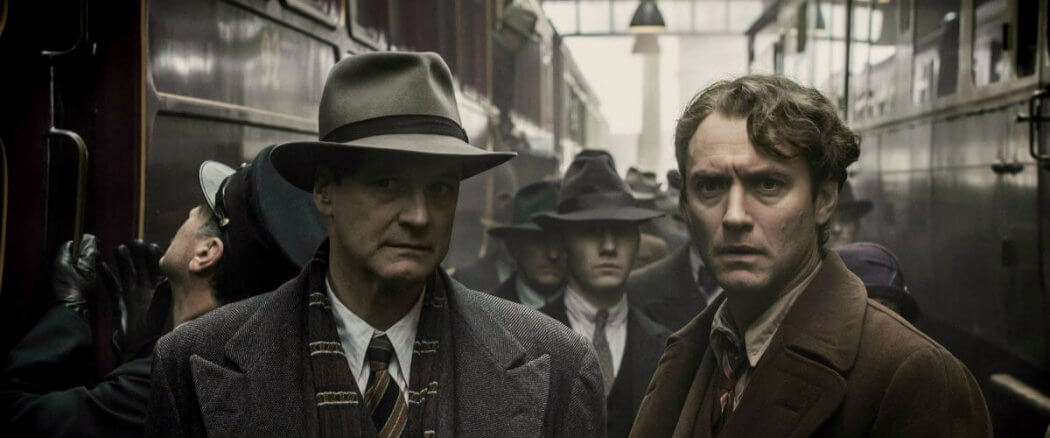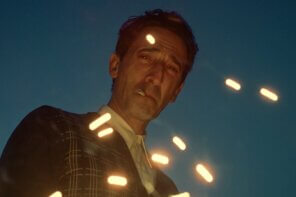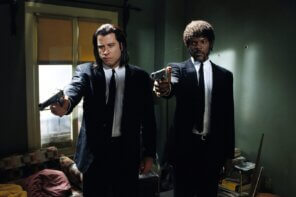There is a tendency, in this human nature of ours, to distill a thing into what we consider its most fundamental. Sex becomes pleasure, knowledge becomes a recitation of facts, culture becomes equitable with skin color. These derivations all seem essential in some ways, but, through this distillation, we lose the whole and are left with an empty shell of a thing. Sex loses its creative and intimate nature, trading it in for titillation and excitement — far lesser pleasures that do not last (and yet we try to hold onto them with little blue pills, or female libido enhancers). Knowledge loses the wholeness that comes when wisdom enters the picture, when thoughtfulness and creative application take facts and utilize them for something more than trivia. Culture too seems to get swallowed by narrow confines of identity in race, sexuality, or politics.
None of these components are wrong, but they are components we have turned into a concept of the complete — the movie Genius plays off this tendency, and gives us a beautiful insight into what genius really is; how (despite the greatness of those distilled components) a complete genius is a beautiful thing, and it might look more ordinary or plain on the surface, but its true ability goes far beyond the limitations of our assumptions.
Personally this was not something I observed immediately. If you read the other reviews and essays I’ve written you may notice a trend: I have a love for the aloof “genius” and their relationship to the world — so my leanings (and really, they still are) were towards the “genius” of Thomas Wolfe. I do not want to write a megalomaniacal essay devoted to some What About Bob type breakdown; but I think most writing, most shared ideas, are a gateway to the author’s mind — what resonates with us on an individual level, or challenges, or whatever, becomes an inner conversation (long link on this whole topic… well worth the listen) between ourselves (reader) and this other intelligent agency (author). Now that the egotistical ground work for my big whiff on perceiving the great (and subtle) turning point of this film has been laid we can move on from the me, me, me diatribe and into the meat of what Genius is about.
What Constitutes Genius?
So there is a cute, trite, and overused quote attributed (but not confirmed) to Albert Einstein on the reality of all people being geniuses in different arenas… but blaming a fish for being unable to climb a tree and calling it incapable gets at the problem of our notion of genius and value. It is cute, trite, and overused because it is true, but largely unhelpful — it does not help us see the other as the genius they are. Genius takes that next step — listen to this interview for some greater insight into this vision.
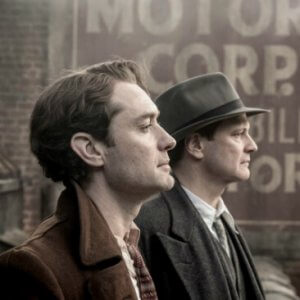 The movie centers around the relationship between editor Max Perkins (played by Colin Firth) and Thomas Wolfe (Jude Law) — there are other characters, but they are flat movers of the story… almost secondary plot devices rather than people of intrigue. Oddly, despite their unexplored nature, each of these secondary characters adds to this theme of genius not simply residing among the aloof, egotistical, and outrageous orators and creators (such as Thomas Wolfe) by providing insights and revelations that are key to our turning from the exclusivity of Wolfe’s genius, to its alienating and less edifying factors, towards Perkin’s understated “genius of friendship” as Scott Fitzgerald (Guy Pearce) informs Mr. Wolfe.
The movie centers around the relationship between editor Max Perkins (played by Colin Firth) and Thomas Wolfe (Jude Law) — there are other characters, but they are flat movers of the story… almost secondary plot devices rather than people of intrigue. Oddly, despite their unexplored nature, each of these secondary characters adds to this theme of genius not simply residing among the aloof, egotistical, and outrageous orators and creators (such as Thomas Wolfe) by providing insights and revelations that are key to our turning from the exclusivity of Wolfe’s genius, to its alienating and less edifying factors, towards Perkin’s understated “genius of friendship” as Scott Fitzgerald (Guy Pearce) informs Mr. Wolfe.
As the film progresses the perspective is shifted. In the beginning we watch, astonished by Wolfe through the eyes of Perkins. We follow Perkins home as he reads, unceasingly, the lengthy draft of what will become Look Homeward, Angel in a single evening. The film appears to be headed down the typical story of the talented and bizarre nature of a true genius a la Shine, or A Beautiful Mind. However, as the film progresses we begin to see Max through the eyes of Wolfe (with the help of other characters’ insightful comments). This shift is almost lost, or for those of us fixated on Wolfe, becomes unobservable during the movie. What we come to realize is that the family man of values may be the greater genius than the isolated eccentric — contrary to our common understanding/obsession.
Grace Abounds
Putting up with an individual like Wolfe takes a special kind of person. The scene in which he drunkenly belittles F. Scott Fitzgerald in front of an unstable Zelda (recently released from the psych ward) makes you cringe at the destructive power of self-aggrandizement, of believing that you are a genius (even if it is true). An incredible moment happens towards the end, when Wolfe seeks Fitzgerald to apologize, and Fitzgerald responds: “It’s alright. I’ve been drunk once or twice myself, you know.”
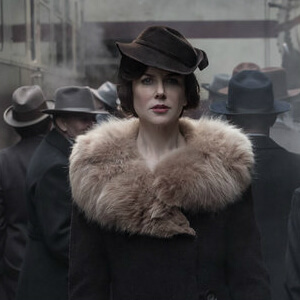 Really, as the movie moves on we see Max and Wolfe walking very different paths. Wolfe, as he believes in his own genius, becomes more and more self-indulgent, more under the spell of his press clippings, and under the impression that he can do no wrong. Max, meanwhile, continues on, even-keeled knowing that Tom is special, but not so much to lose his head over things. Max indulges in degrees, by sacrificing family time to soothe Wolfe’s obsessive passion for completing his book, but quickly backtracks to what he knows is right.
Really, as the movie moves on we see Max and Wolfe walking very different paths. Wolfe, as he believes in his own genius, becomes more and more self-indulgent, more under the spell of his press clippings, and under the impression that he can do no wrong. Max, meanwhile, continues on, even-keeled knowing that Tom is special, but not so much to lose his head over things. Max indulges in degrees, by sacrificing family time to soothe Wolfe’s obsessive passion for completing his book, but quickly backtracks to what he knows is right.
Speaking of family — the Perkin’s (as portrayed) is an incredible display of graciousness in the face of disagreement and pain. This family does not simply put on airs, they genuinely love and care about each other. The entire family has this incredible ability to not lose sight of each other as an individual and separate person, but simultaneously a part of the whole. I believe this is an almost miraculous task — our tendency is to objectify the people we spend the most time with, they become a means to my ends, and it is almost easier to relate to the personhood of someone who does not share the same roof. Even the family’s love of Tom is an extension of their love and respect for Max.
Still…
I would be lying if I placed Genius in the category of great. Truth be told it is an okay movie. It is worth watching for a lot of reasons — especially to ruminate on these themes. The cast is excellent, despite some cheap bits of dialogue used to “provide insight” rather than letting it unfold naturally. The subtle shift in the eyes through which the story is told is a nice reinforcement of this challenge towards what exactly constitutes genius, from a technical storytelling point this is one of the great things the movie has going for it.
Still, the movie fell a bit flat at times. The narrative moved with a strange and erratic flow that left you wondering how they would bring it to a close. It is one of those movies where you are left wondering: did this need another half-an-hour more or half-an-hour cut?
But, if you’re like me, it might be worth it just to be introduced to Thomas Wolfe and the poetry of his writing:
. . . a stone, a leaf, an unfound door; a stone, a leaf, a door. And of all the forgotten faces.
Naked and alone we came into exile. In her dark womb we did not know our mother’s face; from the prison of her flesh have we come into the unspeakable and incommunicable prison of this earth.
Which of us has known his brother? Which of us has looked into his father’s heart? Which of us has not remained forever prison-pent? Which of us is not forever a stranger and alone?
O waste of lost, in the hot mazes, lost, among bright stars on this weary, unbright cinder, lost! Remembering speechlessly we seek the great forgotten language, the lost lane-end into heaven, a stone, a leaf, an unfound door. Where? When?
O lost, and by the wind grieved, ghost, come back again.

